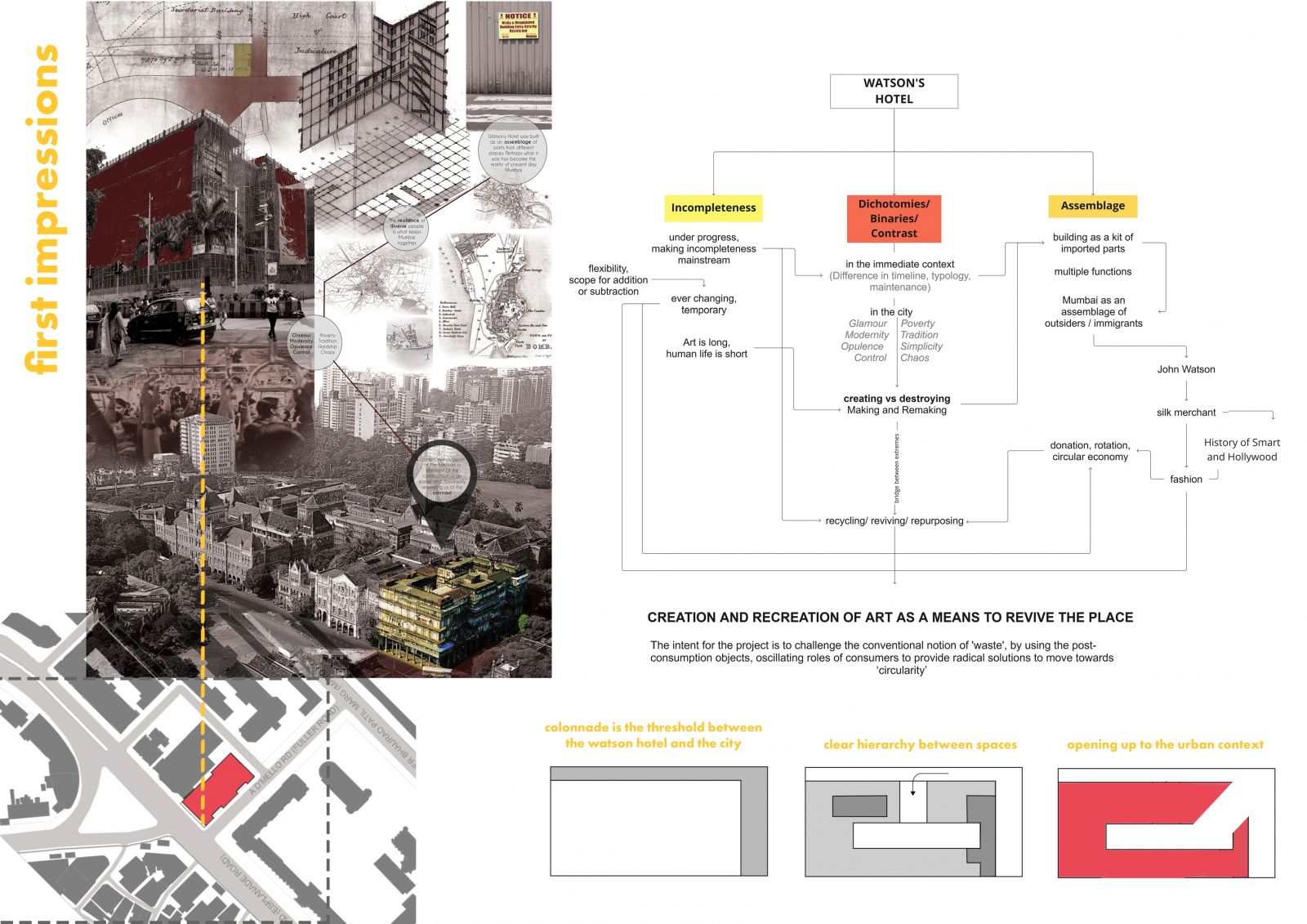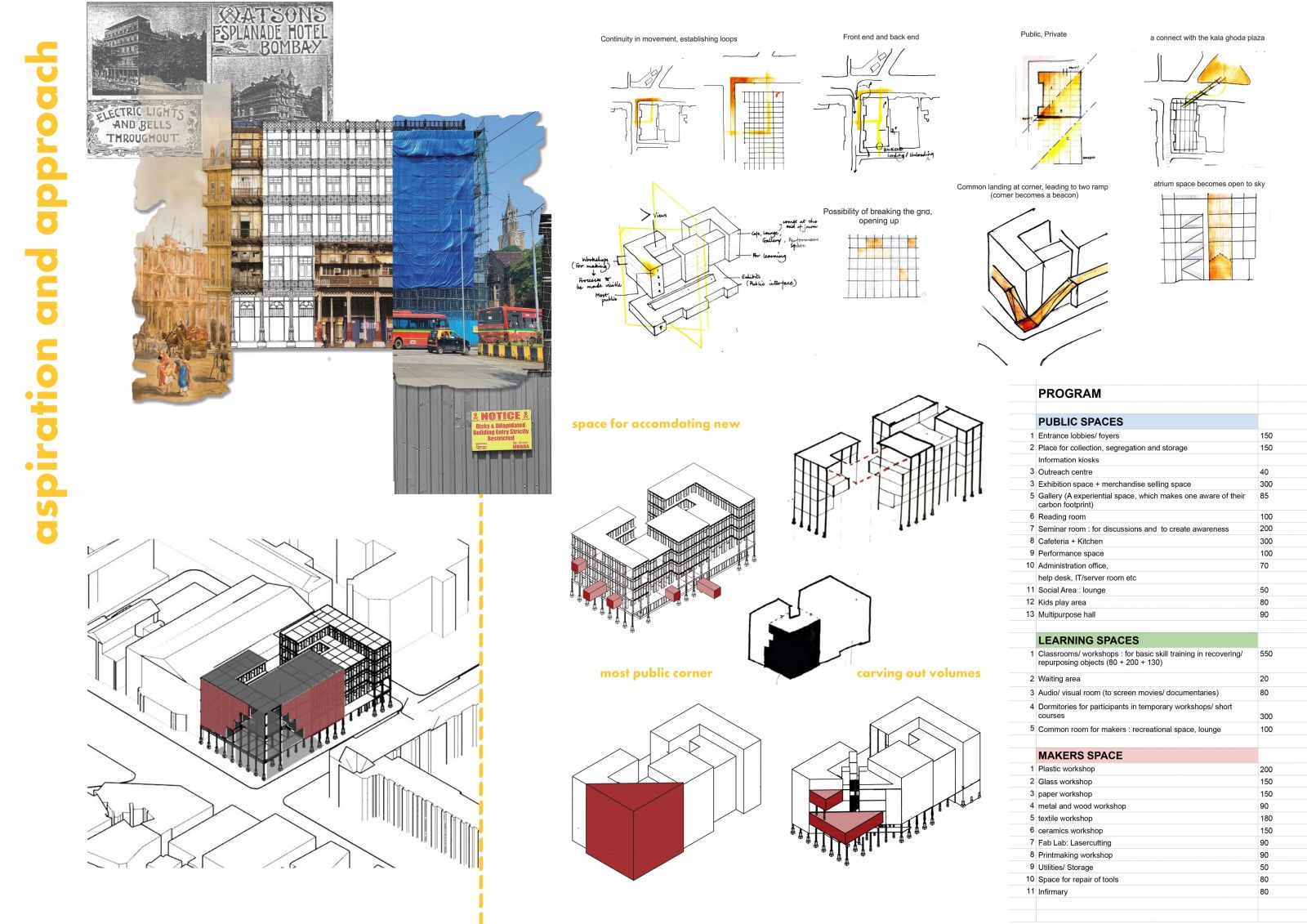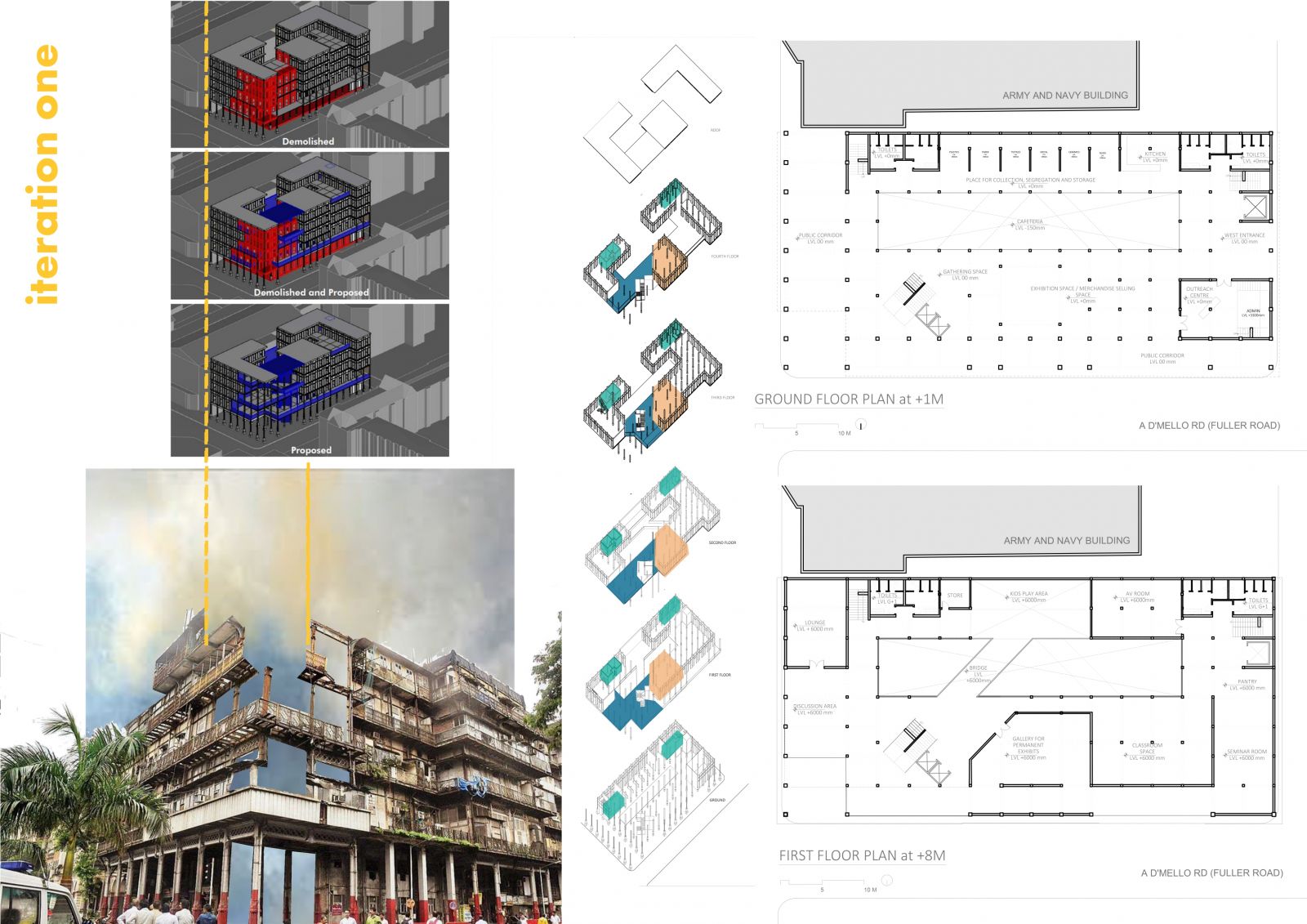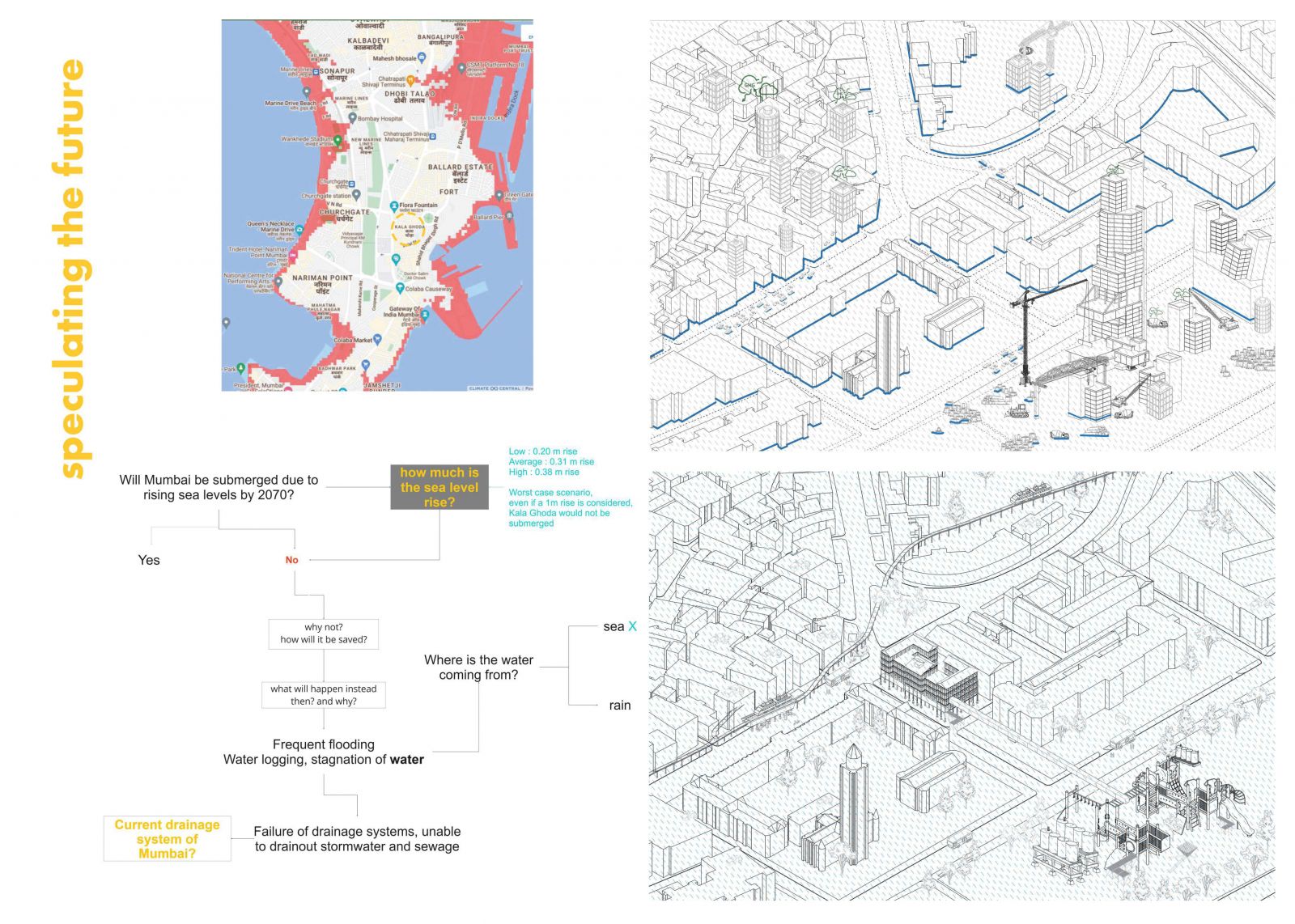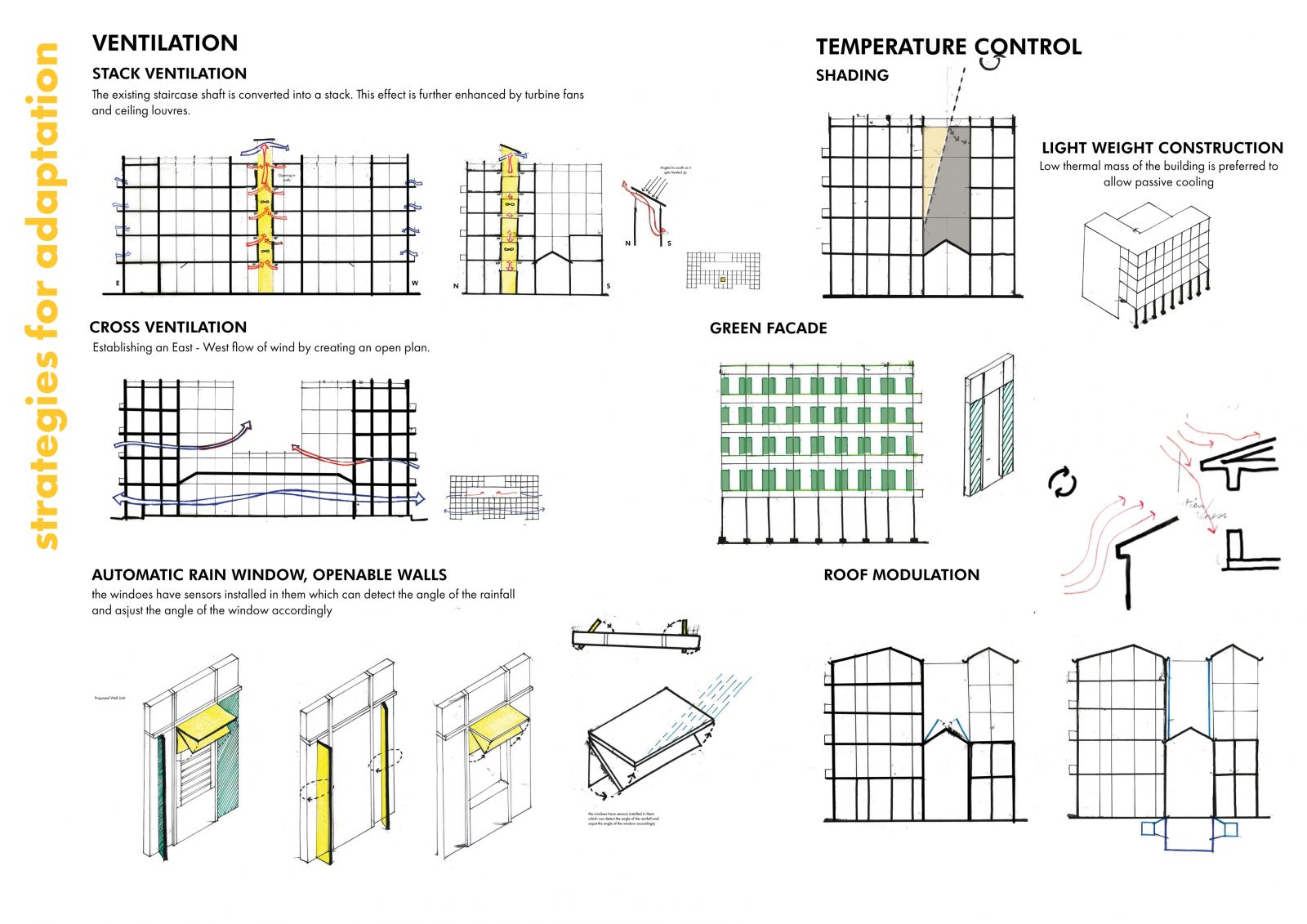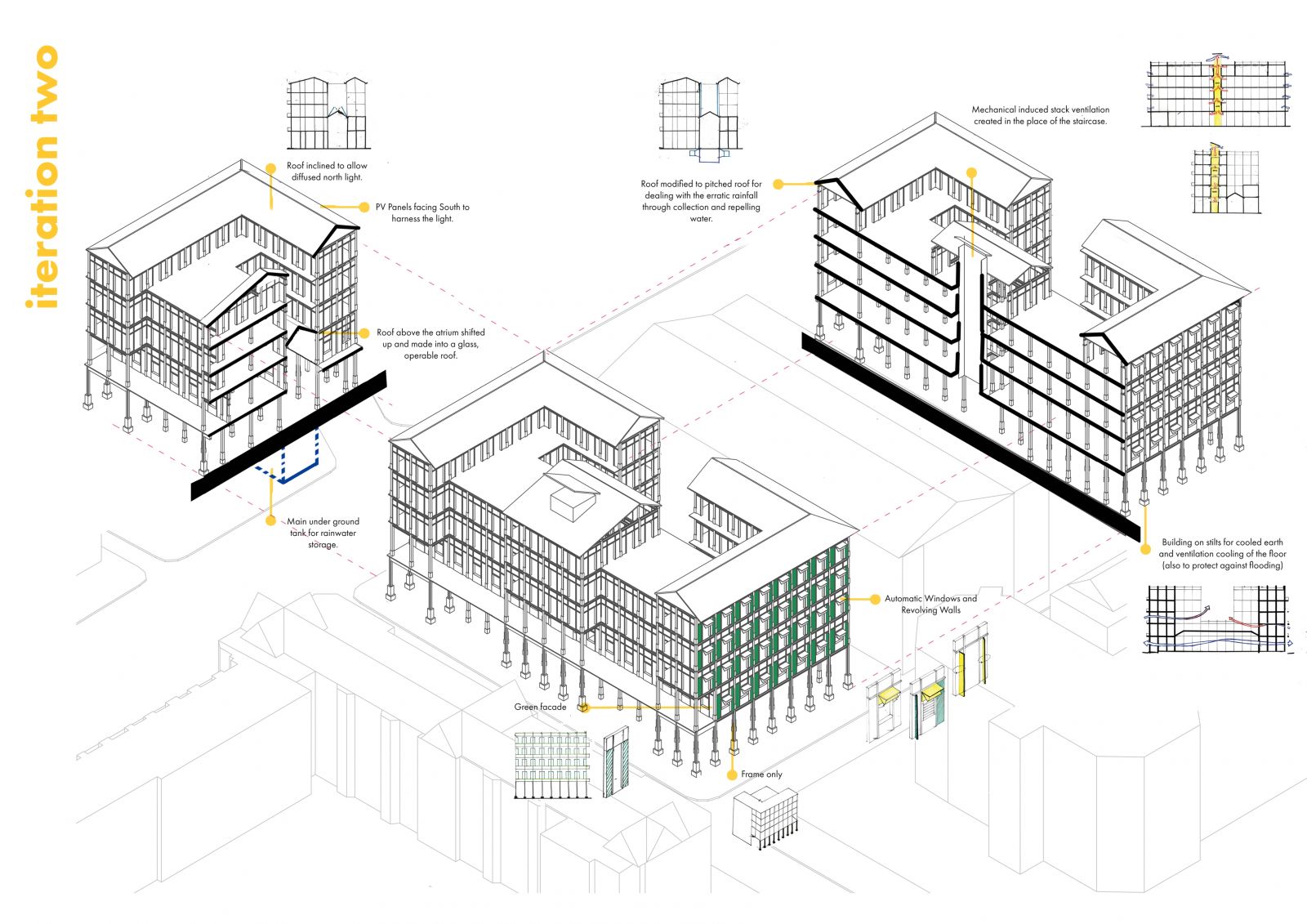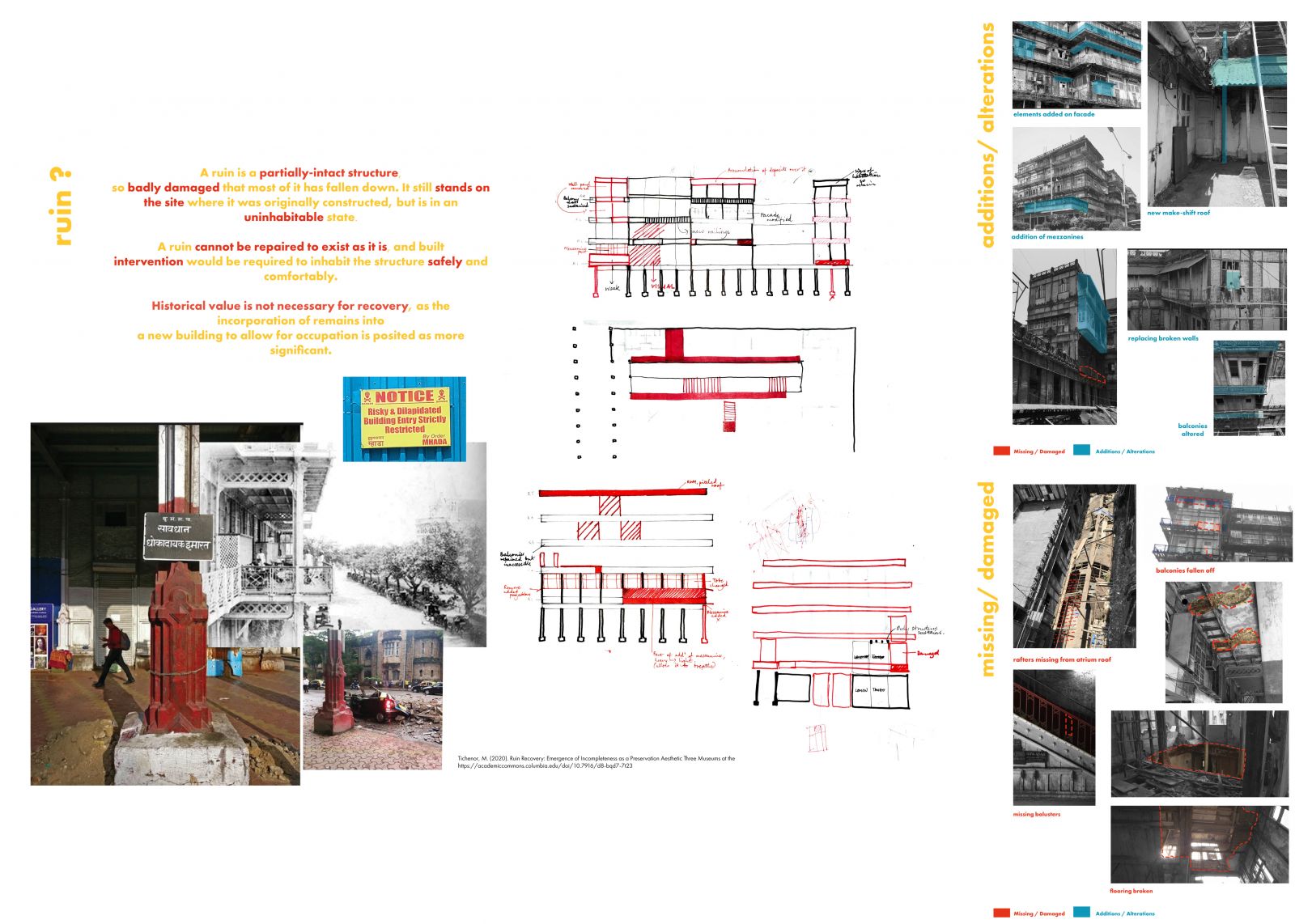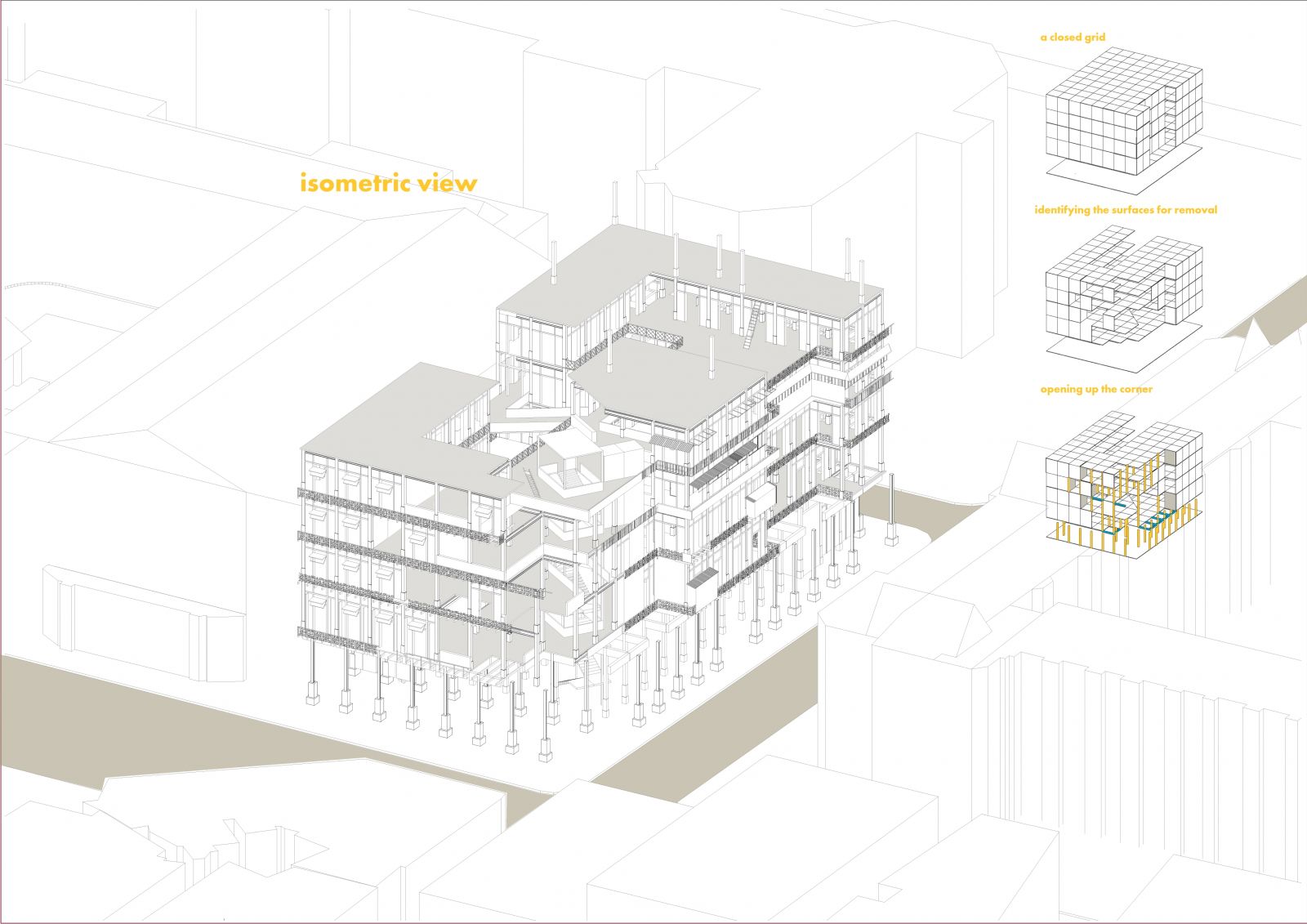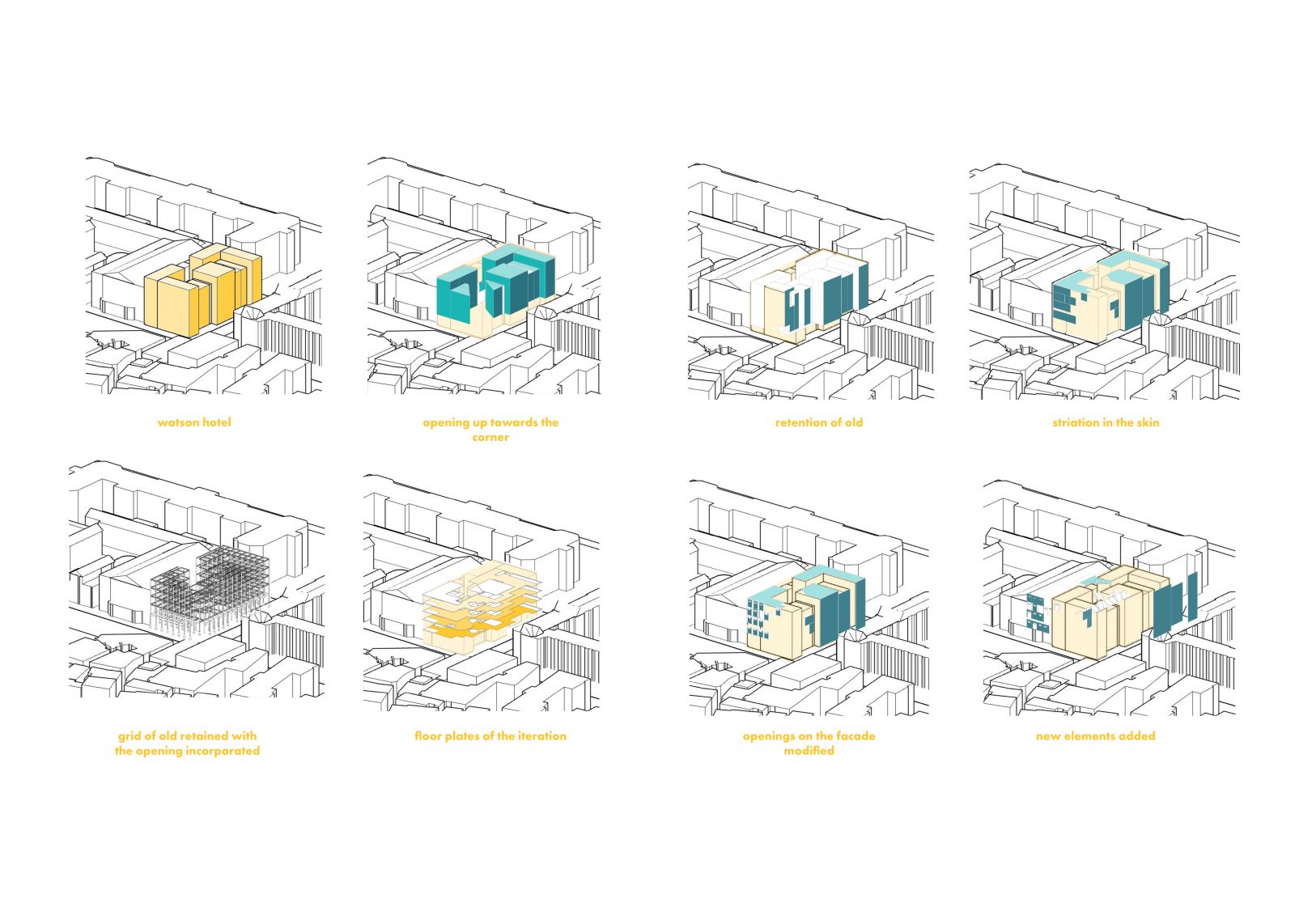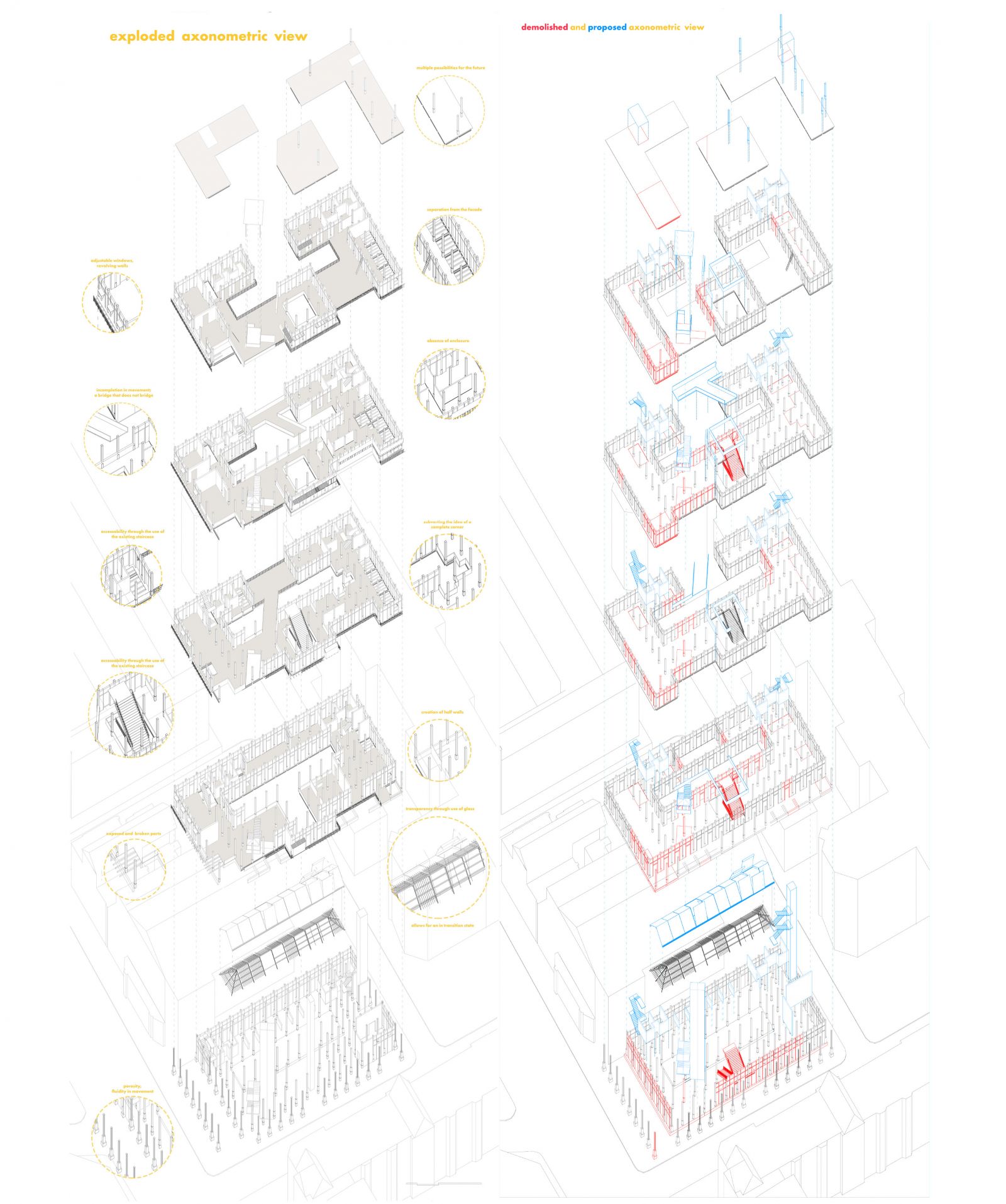- Student Ramsha Midhat
- Code UG180487
- Faculty Architecture
- Tutor/s Shweta Ranpura
- TA Milap Salot
My approach towards adaptation is to create an architecture of incompleteness through reusing the ruin. The current dilapidated state of the Watson Hotel invokes the use of ruination as a strategy for its transformation by giving it a new sense of freedom in a way that hints at its potential for growth and an improved future. This temporal approach acknowledges that time is one of the most important elements of design and stagnancy is an issue because it fails to recognise the potential for future accommodations. The in-between, in-transition character offered by incompleteness as a theme for building adaptation allows multiple possibilities for the future. It is the incompleteness that facilitates continuity, making the building a representation of a work in progress and a manifestation of the changing times. The idea then is to establish a cyclic process and not a linear one. The context in which the Watson Hotel sits is full of heritage protected buildings which are almost untouchable and stuck in time. This manifesto intends to build a contrast with the surroundings and reflect that the present represents only a moment in the life of the building, not its end or completeness. Hence, the building is envisioned to be in a state of continuity, a part of a larger whole and belongs not to one person, one idea or one time. The intention to make an incomplete building is to showcase that a conscious design is constantly evolving and never “complete”. It makes the users see the building in its brutal honesty, question the static, understand the impact of building construction, instigate imagination and design a space of ambiguity with multiple possibilities.
